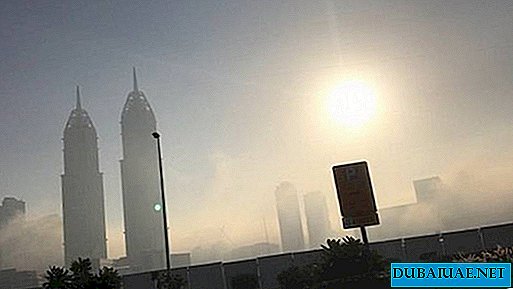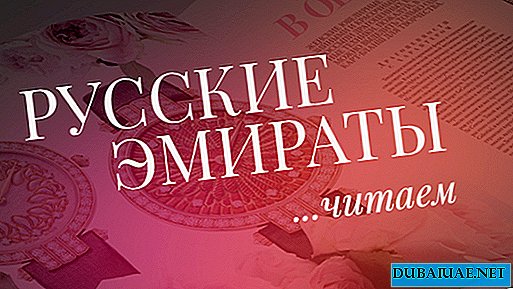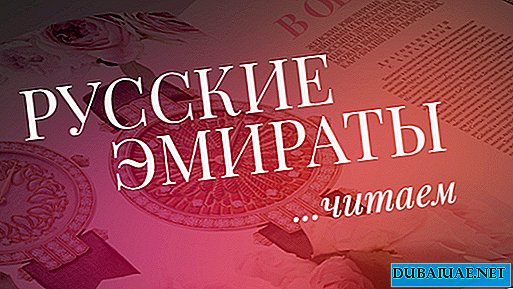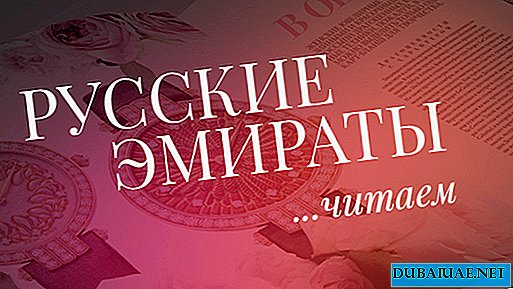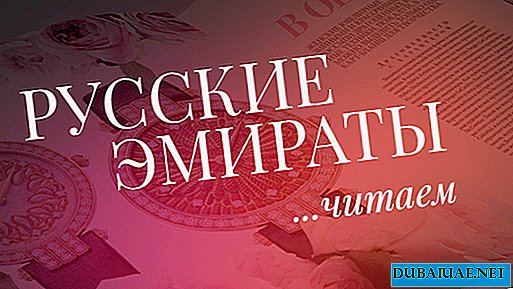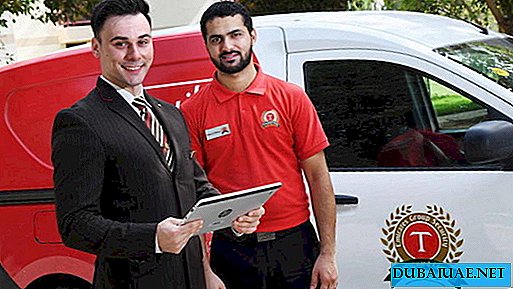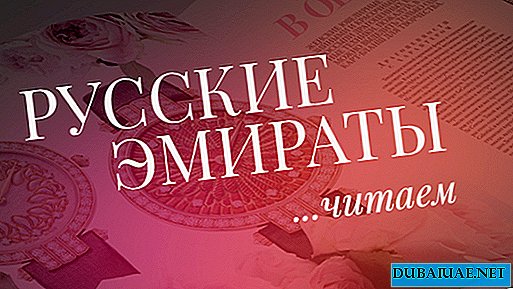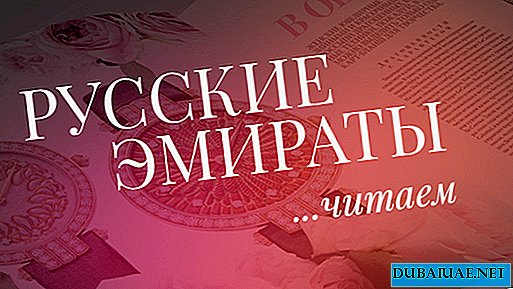DUBAI STARTED THE SEASON OF CHOICE OF SCHOOLS FOR THE NEXT 2015/2016 ACADEMIC YEAR. PAGES OF LOCAL JOURNALS AND NEWSPAPERS ARE MOTIONED WITH COLORFUL ADVERTISING ADS PROMISING EDUCATION AT THE HIGHEST INTERNATIONAL LEVEL. And PARENTS SHIPPING ATTEMPT TO UNDERSTAND THE JUNGLES OF THE LOCAL EDUCATION SYSTEM, FURTHERING THE FAMILY BUDGET FOR THE FUTURE MAJOR COSTS.
 The first question that confronts the family is which school to choose and why. If parents prefer to educate their children in the Russian educational program, or if the family arrived in Dubai for some limited period after which they will return home, then everything is simpler. In the Russian International School (read the interview with the school principal on page 14), located in Al Muhaisnah, 4, children are studying not only from Russia, but also from other CIS countries. If the choice falls on the English-language education, then it is necessary to understand in more detail what’s what.
The first question that confronts the family is which school to choose and why. If parents prefer to educate their children in the Russian educational program, or if the family arrived in Dubai for some limited period after which they will return home, then everything is simpler. In the Russian International School (read the interview with the school principal on page 14), located in Al Muhaisnah, 4, children are studying not only from Russia, but also from other CIS countries. If the choice falls on the English-language education, then it is necessary to understand in more detail what’s what.
Such curriculum came out ...
The most popular training programs in Dubai, or, as they are also called, curriculum, are American (US curriculum), British (UK curriculum) and international (IB curriculum). Their names, in principle, speak for themselves: UK and US are training according to the national programs of Great Britain and the USA. IB (International Baccalaureate) is a program developed in Switzerland in 1968 specifically for international schools. The very choice of the curriculum depends on the reputation of a particular educational system, as well as on the future plans of the student, such as the country of residence, university studies and so on.
Having studied, analyzed and decided on one or another curriculum, parents begin the most critical phase - the choice of a particular school. And here the confusion begins. In Dubai, for example, 5 schools teach US curriculum, plus there are about a dozen schools whose name has the word "american" and which offer elements of the US curriculum in their curriculum. But this is not exactly what those who want to educate their children in the American manner imagine. The concept of teaching, and the whole environment of existence in such schools, cannot be compared with the western one. They are designed more for families from the UAE and the Middle East, and not for European or American expatriates. The same situation is with many Hindu schools offering UK curriculum. You won’t find British teachers there, so before you “fall for” a big name, you need to find out what is really hidden behind it - there are significant cultural and religious differences between educational institutions in Dubai. And this factor is as important for the education of the child as the school curriculum itself.
By the way, if you decide to change curriculum, for example, from British to international, then it is better to do this before the fifth grade. Then the programs are too different from each other. Some local schools, as part of their curriculum, offer elements of other programs, such as IB, which is what students use when studying in the local curriculum until the 9th grade and transferring the last two years to international. Upon completion of training, the cherished International Baccalaureate is on the certificate, but the level of knowledge does not correspond to this.
KHDA INSPECTION
The object of inspections is the following parameters:
- student progress and achievement in key subjects;
- quality of teaching, learning and results in the form of assessments;
- compatibility of the curriculum with the needs of students;
- school management;
- the effectiveness of the institution as a whole.
"The examiner is coming to us!"
Another important criterion for choosing a school is the KHDA (Knowledge and Human Development Authority) rating - a public institution responsible for the development and quality of private education in Dubai, which inspects and classifies all private educational institutions in the city - both schools and universities. Almost all parents, before deciding which school to send their favorite child to, control this famous rating, in which schools are divided into 4 categories: outstanding, good, acceptable and unsatisfactory. It would seem that there can be no better guarantee than a positive assessment by KHDA. But here it is necessary to take into account some nuances. As a government agency, KHDA focuses primarily on the quality of teaching Islamic culture and the Arabic language. This is their main criterion for assigning a particular rating to an educational institution. So parents can be sure that all outstanding schools guarantee excellent Arabic teaching. KHDA pays less attention to teacher qualifications. In some schools, teachers do not have teacher education. It is enough to have at least some diploma and be an English native speaker - and you are already a teacher.
This is due to the elementary desire of management of some educational institutions to save. After all, a school in Dubai is not only a source of knowledge, but also a commercial enterprise. But you must admit, no superdeveloped school structure, with gyms, pools or laboratories, can replace unskilled teaching. You can be a chemist by education, but this does not mean that you know how to teach chemistry. Of course, not everyone accepts such "teachers" into their ranks. Particularly high in this regard are the requirements of IB schools. Nevertheless, the week of the annual inspection at any school can be compared with a parade of troops on Red Square. The rooms licked to shine, the underestimated requirements in the control rooms for obtaining higher grades, the demonstration of the best students (and the worst, it happens sometimes, are asked to stay home these days ...). And this is not surprising, because the rating position of the school for the entire subsequent academic year depends on this week. And the higher the rating, the more willing to study there. Of course, the KHDA rating helps in choosing a particular institution, but you should not rely on it completely and exclusively.
Do you speak English?
Many children who arrived in Dubai already at school age are faced with the problem of English. Especially when the child is older, the program in all subjects without exception is quite complicated and simple English courses become insufficient. Schools solve this problem in two ways: some send the child a year ago with the goal of "giving him time to learn the language," which means "so as not to spoil the picture of the overall academic performance of the parallel that he, in principle, should go to." Others offer special additional classes, but for a huge amount, often equal to almost 70% of the annual contribution. And the most interesting thing is that information about the additional payment comes after the child is enrolled in school and the first payment is paid. But there is the third and smallest category of schools that support families and especially students during this difficult period of changing the country and language, absolutely free of charge and without any tricks.

- Try to find out from the school their assesment policy. Often, in order to maintain a good mood among parents, some schools slightly lower their requirements, allowing children to bring home not entirely deserved brilliant assessments. This relaxes students and does not prepare them for the real requirements of higher education institutions.
- Not the last role in the choice of a particular school is played by the mood of teachers. If they are satisfied with the working conditions, then the quality of teaching will be appropriate. Talk with teachers, feel free to ask questions on topics of interest to you and do not forget - it is your right to know everything about the school and its staff. And not only because you pay a lot of money for training, but also because you trust them the most precious thing that you have - your children.
SCHOOL FACTS:
- There are 160 schools in Dubai, representing a wide variety of educational systems.
- The cost of training depends on both the program and the class. The older the child, the more expensive the training. School fees, for example, for the first grade are very different - from 12,000 to 71,000 dirhams per year.
- Free education exists only in public schools, access to which exists only for UAE citizens and for a very limited contingent of visitors from the region.
- The annual tuition fees do not include: school uniforms, meals, school transport, excursions.
- In the most popular schools, the waiting list can reach one and a half to two years.
- Only one school in Dubai offers Full boarding (tuition and accommodation) - this is Repton School.

Russian International School in Dubai
The Russian International School in Dubai / Russian International School is the only one in the United Arab Emirates where Russian educational programs are taught and the federal policy of the Russian Federation in the field of general education is consistently implemented. Today, children from Russia (about 45%), as well as CIS countries - Ukraine, Kazakhstan, Uzbekistan, Kyrgyzstan, the Republic of Belarus, Azerbaijan, Turkmenistan, Kyrgyzstan, Armenia and Tajikistan, citizens of France, Canada, Germany, and Turkey are studying at the school. Training is conducted in Russian. In addition, from the first days, students begin to learn two foreign languages - English (in-depth) and Arabic. Our correspondent Svetlana Petrova met with the school principal, Marina Halikova.
Marina Borisovna, what is the main difference between the Russian International School in Dubai and all the rest?
Marina Borisovna: Russian International School was established in 1996. This is a unique educational institution in which the educational process is carried out in accordance with the levels of educational programs of the three levels of general education of the Russian Federation and training is conducted in Russian from the preparatory class to the eleventh grade inclusively. The goal of our school is that children who come with their parents in the UAE have the opportunity to learn in the atmosphere of their culture, their traditions.
What are your main expectations for next year?
Marina Borisovna: We have to go through the next commission of the international inspection of KHDA. Also in the plans there are some steps to expand the school. Now we are studying about 500 students, and the number of children is growing all the time.

What do you need to enroll a child in the Russian International School?
Marina Borisovna: Upon admission to school, the student’s parents enter into a model agreement with the school’s administration and also provide the following documents:
- a copy of the birth certificate, its translation into English or Arabic, certified by the Ministry of Foreign Affairs of the country in which the certificate is issued, and legalized at the embassy or consulate of the above country located in the UAE, as well as the Ministry of Foreign Affairs of Dubai;
- a copy of the passport of the child with a resident visa or a copy of the passport of one of the parents on whose visa the child is;
- 4 photos 3x4;
- an extract from the medical record about vaccinations;
- student's personal file (original);
- a copy of the student’s personal file and its translation into English or Arabic, certified by the Ministry of Education and the Ministry of Foreign Affairs of the country where the child was studying, and legalized at the embassy or consulate of the above country located in the UAE, as well as the Ministry of Foreign Affairs of Dubai;
- Emirates ID of the child and one of the parents (copies and originals).


